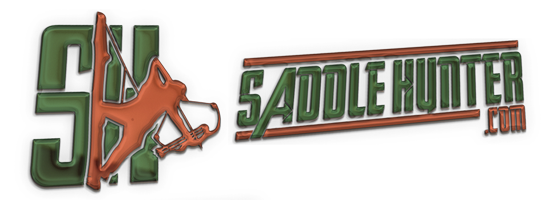These are just my thoughts, and they're worth what you all paid for them.
Qualifiers; they're the thoughts of a 29 year old who has killed 51 deer. Most of them since he turned 18. Lower middle class. Deep, deep south. Homeschooled. So young, poor, and dumb. But literate.
When I think woodsmanship, I think of a romanticized set of skills made popular by 18th and 19th century armchair adventurers, that are no longer useful to 21st century hunters if they ever in fact existed. Natty Bumpo looking at the dirt and telling you a buck walked by 2 days ago sort of stuff. I think on some level a lot of hunters have the idea that there is a lost and subtle art of some sort and if they can learn it they'll be able to see the unseen.
I've had no such luck with that. I rely on modern technology (GPS, compass, field guides, plant ID apps, etc), a layman's understanding of modern science (particularly ecology and evolutionary biology), and a conscious effort to "see what is."
Folks on this forum by and large have no problem embracing modern technology. I think some folks get way too hung up on it, but that's another jibber-jabber session. Science is something I see less embracing of. A lot of hunters rely on anecdotal evidence to form their theories of deer behavior. I think that's a mistake. I try to take the reductionist, materialist, deterministic view of deer. Organisms in an environment with trying their best to replicate.
Learning to disregard most information out there and hone in on sources that make use of organized collection and comparison of data was huge for me. I'm a big fan of Dr. Sheppard's work, MSU Deer Lab, Charles Alsheimer, Leonard Lee Rue, and our very own
@WHW, who I consider a citizen-scientist extraordinaire since he has meticulously documented decades of kills (over 500, I believe) and came to conclusions based on a broad-level analysis of that (small, but useful) database. I would much rather hear a field biologist talk about deer behavior than a hunter. Hunters are also usually story-tellers, and story-tellers fill in the gaps of knowledge to make stories. They see more than just what is.
This is not a particularly popular or fun idea for a lot of people. It's an opinion, but a studied opinion that there is precious little
useful information available to deer hunters, and it usually comes from people trained in the sciences. At best, a lot of info (including the stuff I put out) is a more-or-less accurate diluted tertiary source with its root in peer-reviewed scientific journals.
I'd say the most valuable "woodsmanship" skill is to think of deer as simple organisms seeking to replicate, and learn to see the relationships between them and the rest of their environment. Simplify them.
This ties into "seeing what is." It's the opposite of "seeing the unseen." The problem with the unseen is that it usually exists only in your head. Deer don't do half the things some people convince themselves they do. They don't analyze the wind. They don't walk in water to hide their tracks. They don't send does ahead to scout territory. They don't move according to the lunar phase. They do consume calories, avoid predators, and urgently attempt to procreate.
I started killing way more deer when I started looking for deer instead of deer sign, hunter sign, terrain features, etc. My current though process when scouting is:
"Do you see deer here?"
"No."
"Do you see anything that indicates a deer is certain to be here later during daylight hours?"
"No."
"Ok. Let's keep looking then."
Don't try to invent reasons for deer to be in a place. They're corporeal creatures, and they leave physical indicators of their presence that you are quite capable of seeing with very little effort. If you don't see it when you look for it (assuming you know what to look for...which is where the scientific reading comes in) then it's probably not there.
Most hunters draw conclusions too quickly and with too little evidence, and suffer deerless sits. They're hunting a conceptual deer, that lives solely in their mind and the minds of other hunters, and who does all sorts of interesting things in there...but who has no relation to the flesh-and-blood deer that's allergic to broadheads.
Again, just my thoughts. Worth what I charge.

